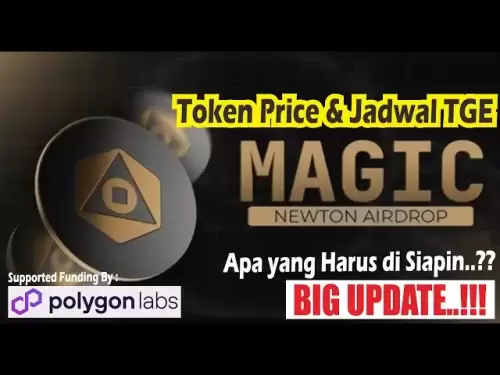 |
|
 |
|
 |
|
 |
|
 |
|
 |
|
 |
|
 |
|
 |
|
 |
|
 |
|
 |
|
 |
|
 |
|
 |
|
Cryptocurrency News Articles
Scammers, Inferno Drainer, and CoinMarketCap: A Crypto Wake-Up Call
Jun 23, 2025 at 04:25 am
A recent CoinMarketCap security breach highlights the growing threat of scammers using sophisticated techniques like Inferno Drainer to target crypto users.

Yo, crypto fam! The wild west of digital assets just got a little wilder. Recent events involving CoinMarketCap and a nasty wallet-draining tool called Inferno Drainer are a serious wake-up call. Here's the lowdown on how scammers are getting smarter and what you can do to protect your precious coins.
CoinMarketCap Gets Burned: The Inferno Drainer Strikes
Picture this: You're cruising CoinMarketCap, checking prices, and suddenly a pop-up appears, urging you to "Verify Your Wallet." Seems legit, right? Wrong! This was the bait in a recent coordinated attack, where scammers injected malicious code into CoinMarketCap's site, using a tool called Inferno Drainer. The result? Over $43,000 drained from unsuspecting users' wallets in a matter of hours.
Tammy H from Flare.io, a cybercrime intelligence firm, broke down how the attackers used Inferno Drainer, a known wallet-draining toolkit. The pop-up, appearing on almost every page, tricked users into connecting their wallets, which were then promptly emptied. Ouch!
Inside the Attack: How They Did It
Leaked images from a Telegram channel called TheCommsLeaks revealed the inner workings of the attack. Screenshots showed a live dashboard displaying wallet connections, token transfers, and total values drained in real time. The attackers were clearly focused on maximizing visibility and wallet connections, even to the point of overloading the "connect" button.
Victims lost SOL, XRP, EVT, and smaller coins like PENGU and SHDW. While not every attempt succeeded (some wallets held unsupported tokens or negligible balances), the overall impact was significant.
CoinMarketCap's Response: Damage Control
CoinMarketCap quickly addressed the issue, confirming that a malicious doodle image on their homepage triggered the attack through an embedded API call. They removed the malicious content, patched their systems, and assured users that the platform is now safe and secure. They were very transparent, and the community appreciated it.
Why This Matters: Trust No One (Seriously)
This incident highlights how easily trust in familiar interfaces can be misused. Even small interface changes, like a harmless homepage doodle, can be leveraged for large-scale damage. It's a reminder that in the crypto world, you need to be extra cautious.
Remember the recent case where scammers exploited search ads to trick users into calling fake support numbers for Apple and PayPal? It's the same playbook: attackers prey on user assumptions about what's safe to interact with online.
Staying Safe: Your Crypto Armor
So, how do you protect yourself? Here are a few key takeaways:
- Avoid connecting wallets directly through pop-ups. Always verify the prompt against the platform's official guidance.
- If something looks familiar, don't assume it's safe. Double-check everything.
- Use hardware wallets for storing large amounts of crypto.
- Stay informed about the latest scams and security threats.
The Bottom Line
The CoinMarketCap incident is a stark reminder that the crypto space is still the Wild West, and scammers are constantly evolving their tactics. By staying vigilant, questioning everything, and taking proactive steps to protect your assets, you can avoid becoming the next victim. Stay safe out there, crypto cowboys and cowgirls!
Disclaimer:info@kdj.com
The information provided is not trading advice. kdj.com does not assume any responsibility for any investments made based on the information provided in this article. Cryptocurrencies are highly volatile and it is highly recommended that you invest with caution after thorough research!
If you believe that the content used on this website infringes your copyright, please contact us immediately (info@kdj.com) and we will delete it promptly.




























































